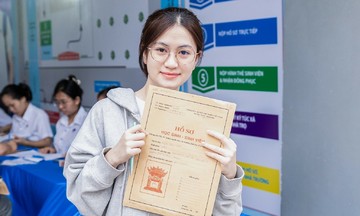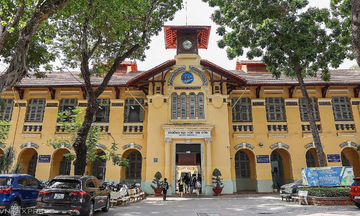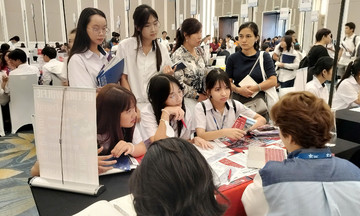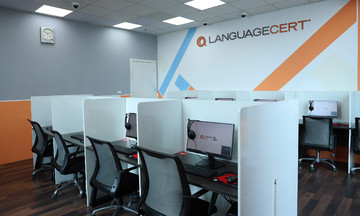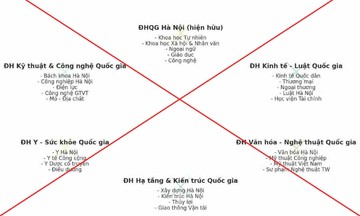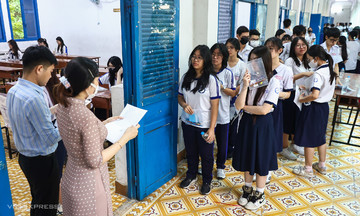The project originated in September 2024 during a Startup Experience 1 class at FPT University's Can Tho campus. After completing the course, six students from Digital Marketing and Digital Art Design – Tran Thi Bich Tram, Duong Nguyen Tuyet Trinh, Duong Thi Thao Nhu, Nguyen Thi Hong Yen, Nguyen Mai Vinh, and Vo Phuoc Huy – decided to further develop the project into their graduation thesis.
The team's representative explained that the idea stemmed from concerns about single-use plastic waste. "Every day, a massive number of plastic spoons, cups, and straws are used, and they are extremely difficult to decompose. We wanted to find a replacement material that is both environmentally friendly and practical."
 |
The six members of the POSE team working on their kumquat peel spoon and coaster project. Photo: FPTU |
The six members of the POSE team working on their kumquat peel spoon and coaster project. Photo: FPTU
After conducting research, the group selected kumquat peels, an agricultural byproduct rich in cellulose and containing antibacterial essential oils, as their primary material. This led to the development of POSE, a project offering a potential solution to reduce plastic waste while also providing community value.
The process of transforming kumquat peels into usable products involves several steps: collecting the peels, cleaning them, drying them, grinding them into a fine powder, mixing the powder with a bio-adhesive, heat-pressing the mixture using stainless steel molds, and finally, testing the durability of the finished products.
"In the initial stages, we applied the Lean Startup model: developing prototypes, testing their durability, heat resistance, and safety, and continuously adjusting the formula. We also designed heated stainless steel molds to ensure the products maintain their shape and prevent warping during drying," Nguyen Mai Vinh said.
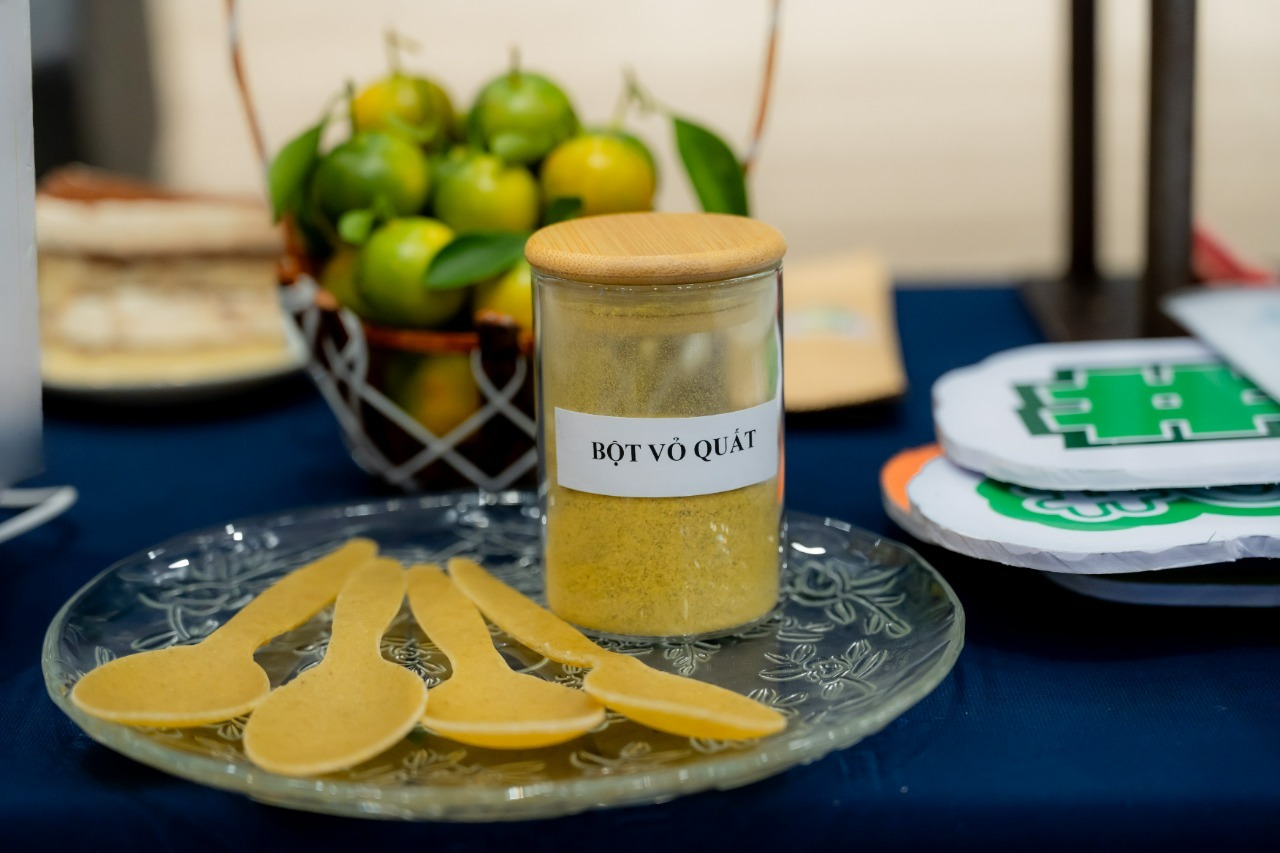 |
Biodegradable spoons made from kumquat peels. Photo: FPTU |
Biodegradable spoons made from kumquat peels. Photo: FPTU
Compared to traditional plastics, POSE spoons are biodegradable, do not create microplastics, and are safe for health. Compared to PLA plastic or products made from sugarcane bagasse or corn starch, POSE utilizes a readily available, inexpensive byproduct, resulting in a 10-15% lower cost. The spoons also benefit from the antibacterial properties of kumquat essential oil.
The product has received food safety certification under the MFDS 2021 Standards and Specifications for Foods Utensils, Containers and Packages, granted by QUATEST 3. This certification is essential for bringing the product to market. The project also held a brand launch workshop attended by nearly 20 businesses, receiving a collaboration proposal from Mekong Silt Resort and interest from ECOKA Joint Stock Company for product distribution on Amazon.
POSE has also achieved other milestones, including reaching the top 12 of FPT University's Business Challenge 2024, winning the "Promising Project" award, receiving a 2 million VND investment in the Pre-Seed Funding round, securing 50 million VND in funding from the university, and signing a partnership agreement with Abavina, a certified supplier of raw materials.
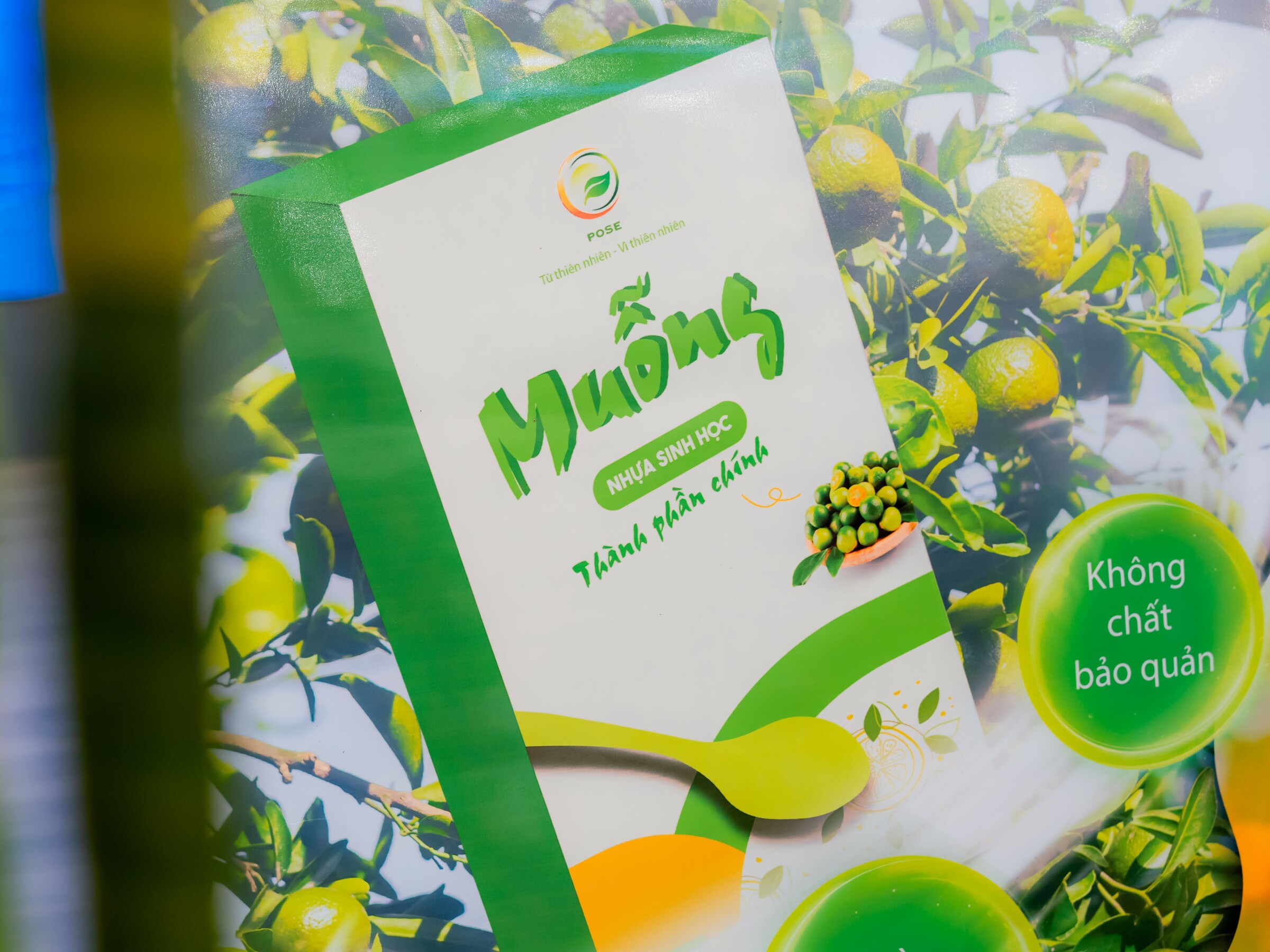 |
The products have been certified under the MFDS 2021 Standards and Specifications for Foods Utensils, Containers and Packages, granted by QUATEST 3. Photo: FPTU |
The products have been certified under the MFDS 2021 Standards and Specifications for Foods Utensils, Containers and Packages, granted by QUATEST 3. Photo: FPTU
The team aims to expand production, diversify their product range, and eventually target the export market. "We believe POSE is not just a student project, but can become a green startup, contributing to reducing plastic waste and promoting an environmentally friendly lifestyle," the team's representative emphasized.
Currently, the spoons are priced at 15,000 VND for a pack of 10, and the coasters at 45,000 VND for a pack of 10. The team plans to continue improving the production process to offer even more competitive pricing.
A university representative acknowledged the project's potential, stating that the kumquat peel bio-spoon project demonstrates the ability to transform academic ideas into green consumer solutions that contribute to reducing plastic waste and promoting sustainable development.
FPT University has supported POSE's entrepreneurial journey. In addition to financial backing, faculty advisors have guided the six talented students through idea generation, business model adjustments, feasibility testing, and business networking.
"The funding and support are not only financially significant but also validate the project's commercialization potential, further motivating us to pursue green entrepreneurship," a team representative stated.
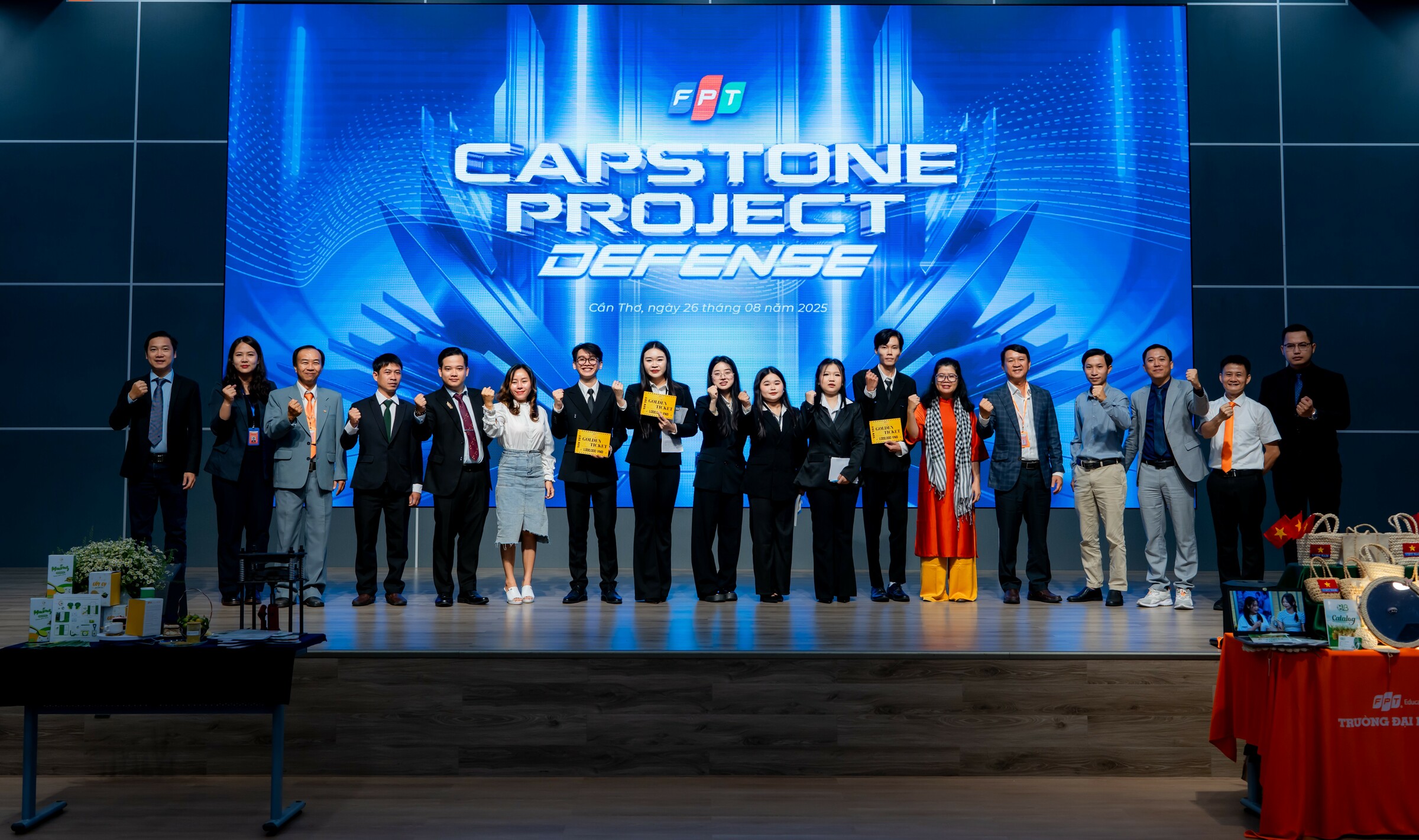 |
The project has received investment and support from the university and businesses. Photo: FPTU |
The project has received investment and support from the university and businesses. Photo: FPTU
According to POSE members, the learning environment at FPTU effectively integrates theory and practice. Students simultaneously learn fundamental theories and participate in real-world projects, collaborating with businesses and addressing social issues. POSE exemplifies this journey, evolving from a classroom idea to pitching, fundraising, and business collaboration.
Throughout the development process, the team faced setbacks, including an unstable formula, fragile products, and an unrefined process. However, they view these challenges as an integral part of learning and innovation, providing room for experimentation, the right to make mistakes, and the opportunity to improve.
POSE's future plans involve stabilizing production and expanding distribution to cafes, restaurants, and events. Concurrently, the team is developing online sales channels and exploring e-commerce platforms. In the long term, the members aim to secure funding to build a large-scale factory, implement advanced technology to reduce costs and increase competitiveness, and ultimately, target the export market.
Nhat Le





